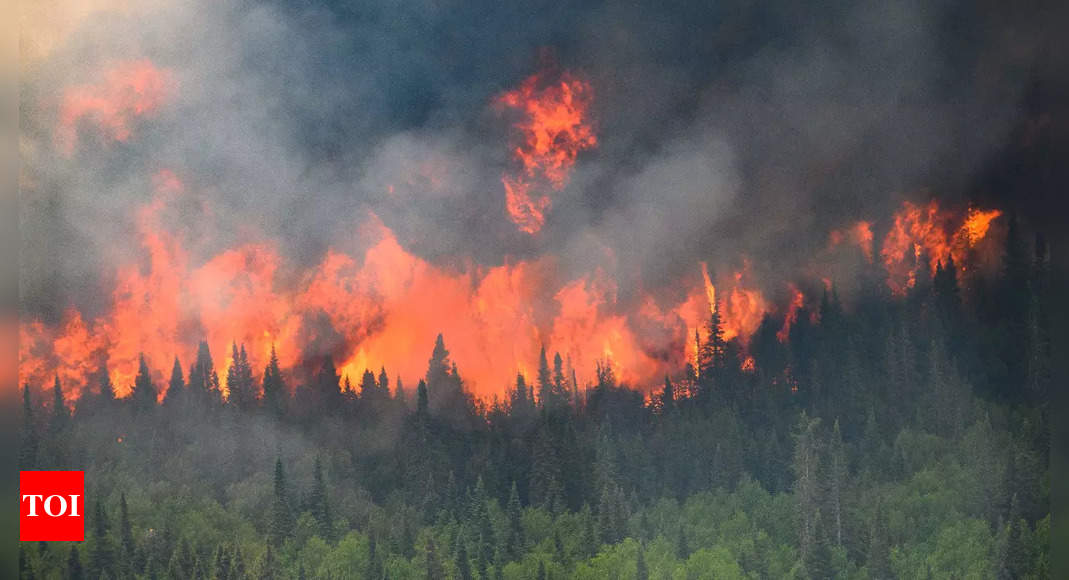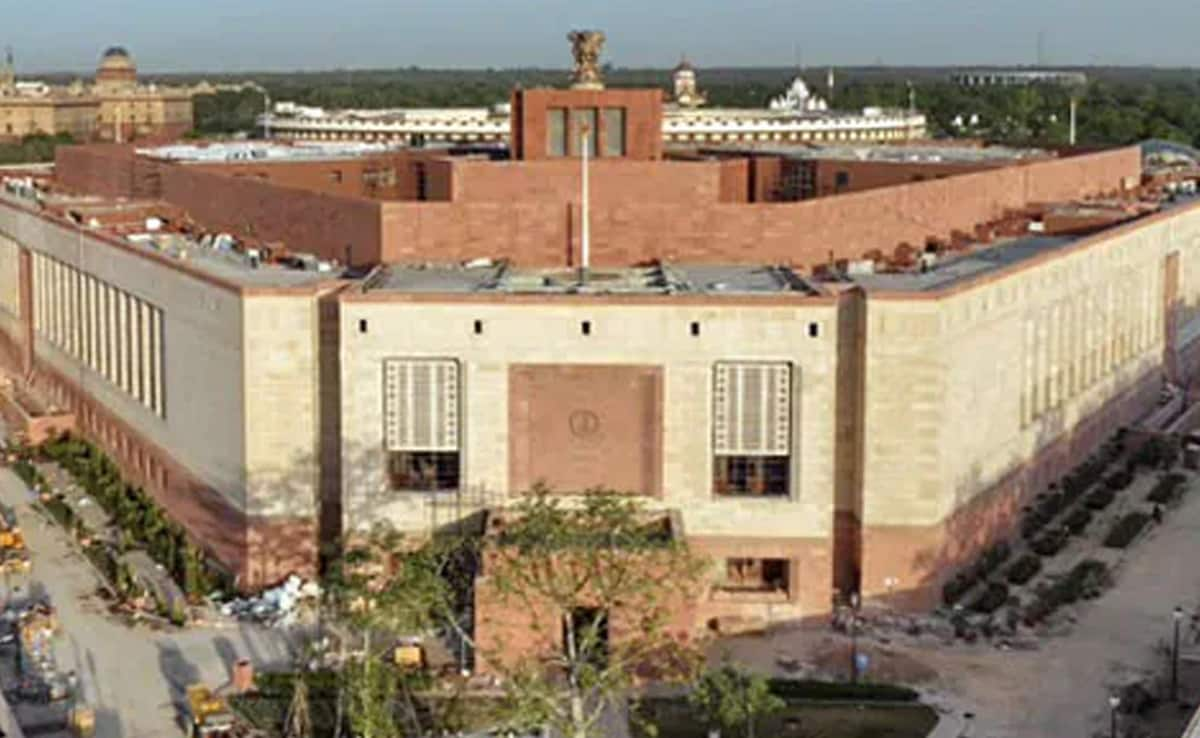
Wildfires have wreaked havoc in the Canadian town of Jasper, destroying up to half of the community and prompting mass evacuations. Officials report that the blazes have leveled entire streets in Jasper, located in Alberta’s Jasper National Park, according to the BBC.
Causes and immediate impact
Triggered by a lightning storm and fanned by powerful winds, the fires have left the once-bustling tourist destination in ruins.Smoldering rubble and charred vehicles now mark the site of what were once homes and businesses. Approximately 20,000 tourists and 5,000 residents have fled the mountainous area.
Government response
Alberta Premier Danielle Smith, tearful during a news conference on Thursday, struggled to convey the scale of the destruction. She estimated that “potentially 30 to 50 percent” of buildings may have been lost. “There is no denying that this is the worst nightmare for any community,” Smith said, adding that Jasper National Park had been “a source of pride” for many generations.
Impact on local business
Local business owners are feeling the impact profoundly. Karyn Decore, owner of the Maligne Lodge, was on holiday when she received a photograph of her hotel in flames. “I was horrified and devastated when I saw that photo,” she told the BBC. “It’s really hard for everyone to comprehend that we lost one of our properties.”
Firefighting efforts
Efforts to combat the blaze have drawn in hundreds of firefighters from around the world, including teams from Australia, New Zealand, Mexico, and South Africa. Pierre Martel, director of the national fire management program at Parks Canada, described the extreme difficulty in containing the fire. “It [was] just a monster at that point,” he said. “There are no tools we have in our toolbox to deal with it.”
Rapid spread of the fire
The flames, reaching heights of up to 100 meters (328 feet) in some areas, spread rapidly. Alberta’s Minister for Public Safety, Mike Ellis, recounted how the fire advanced from being 5 km (three miles) outside of Jasper to engulfing the town in less than 30 minutes. “Any firefighter will tell you there is little to nothing you can do when you have a wall of flames coming at you like that,” Ellis said. “Nobody anticipated that fire to come so fast, so large, and so quickly.”
Prime Minister Justin Trudeau expressed his gratitude towards the emergency services, saying, “As the heartbreaking images from Jasper emerge, I want to thank the brave first responders who are in Alberta right now, fighting to save every home and every community they can.”
Minimal impact of rainfall
Despite some rainfall overnight, officials from Jasper National Park reported that it had “no significant impact” on the wildfire. “While the rain helped reduce fire activity slightly, it is not enough to have made a meaningful impact on the overall wildfire situation, which remains out of control,” read a post on the park’s social media account.
The wildfires in Jasper are part of a broader pattern of severe fire conditions in the region. Last year, a record 2.2 million hectares burned in Alberta between March 1 and October 31. In addition to the fires in Alberta, there are over 45 active blazes in British Columbia, and fires are burning in several US states, including California, Oregon, Washington, Montana, and Utah.
Causes and immediate impact
Triggered by a lightning storm and fanned by powerful winds, the fires have left the once-bustling tourist destination in ruins.Smoldering rubble and charred vehicles now mark the site of what were once homes and businesses. Approximately 20,000 tourists and 5,000 residents have fled the mountainous area.
Government response
Alberta Premier Danielle Smith, tearful during a news conference on Thursday, struggled to convey the scale of the destruction. She estimated that “potentially 30 to 50 percent” of buildings may have been lost. “There is no denying that this is the worst nightmare for any community,” Smith said, adding that Jasper National Park had been “a source of pride” for many generations.
Impact on local business
Local business owners are feeling the impact profoundly. Karyn Decore, owner of the Maligne Lodge, was on holiday when she received a photograph of her hotel in flames. “I was horrified and devastated when I saw that photo,” she told the BBC. “It’s really hard for everyone to comprehend that we lost one of our properties.”
Firefighting efforts
Efforts to combat the blaze have drawn in hundreds of firefighters from around the world, including teams from Australia, New Zealand, Mexico, and South Africa. Pierre Martel, director of the national fire management program at Parks Canada, described the extreme difficulty in containing the fire. “It [was] just a monster at that point,” he said. “There are no tools we have in our toolbox to deal with it.”
Rapid spread of the fire
The flames, reaching heights of up to 100 meters (328 feet) in some areas, spread rapidly. Alberta’s Minister for Public Safety, Mike Ellis, recounted how the fire advanced from being 5 km (three miles) outside of Jasper to engulfing the town in less than 30 minutes. “Any firefighter will tell you there is little to nothing you can do when you have a wall of flames coming at you like that,” Ellis said. “Nobody anticipated that fire to come so fast, so large, and so quickly.”
Prime Minister Justin Trudeau expressed his gratitude towards the emergency services, saying, “As the heartbreaking images from Jasper emerge, I want to thank the brave first responders who are in Alberta right now, fighting to save every home and every community they can.”
Minimal impact of rainfall
Despite some rainfall overnight, officials from Jasper National Park reported that it had “no significant impact” on the wildfire. “While the rain helped reduce fire activity slightly, it is not enough to have made a meaningful impact on the overall wildfire situation, which remains out of control,” read a post on the park’s social media account.
The wildfires in Jasper are part of a broader pattern of severe fire conditions in the region. Last year, a record 2.2 million hectares burned in Alberta between March 1 and October 31. In addition to the fires in Alberta, there are over 45 active blazes in British Columbia, and fires are burning in several US states, including California, Oregon, Washington, Montana, and Utah.









